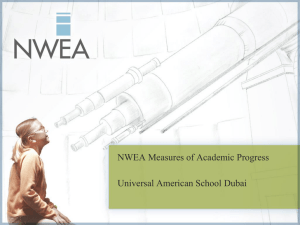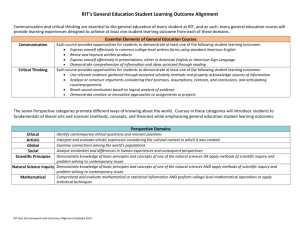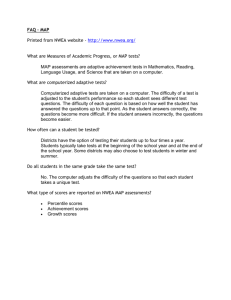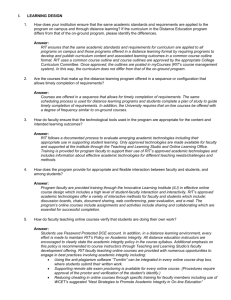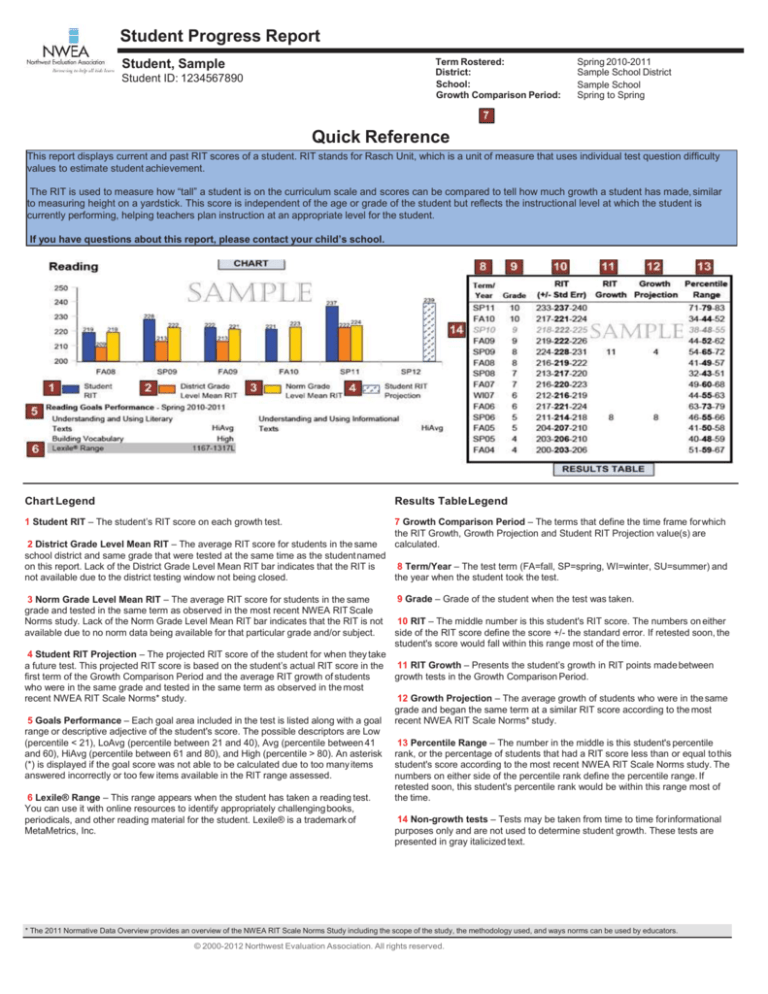
Student Progress Report
Term Rostered:
District:
School:
Growth Comparison Period:
Student, Sample
Student ID: 1234567890
Spring 2010-2011
Sample School District
Sample School
Spring to Spring
Quick Reference
This report displays current and past RIT scores of a student. RIT stands for Rasch Unit, which is a unit of measure that uses individual test question difficulty
values to estimate student achievement.
The RIT is used to measure how “tall” a student is on the curriculum scale and scores can be compared to tell how much growth a student has made, similar
to measuring height on a yardstick. This score is independent of the age or grade of the student but reflects the instructional level at which the student is
currently performing, helping teachers plan instruction at an appropriate level for the student.
If you have questions about this report, please contact your child’s school.
Chart Legend
Results Table Legend
1 Student RIT – The student’s RIT score on each growth test.
7 Growth Comparison Period – The terms that define the time frame for which
the RIT Growth, Growth Projection and Student RIT Projection value(s) are
calculated.
2 District Grade Level Mean RIT – The average RIT score for students in the same
school district and same grade that were tested at the same time as the student named
8 Term/Year – The test term (FA=fall, SP=spring, WI=winter, SU=summer) and
on this report. Lack of the District Grade Level Mean RIT bar indicates that the RIT is
the year when the student took the test.
not available due to the district testing window not being closed.
3 Norm Grade Level Mean RIT – The average RIT score for students in the same
grade and tested in the same term as observed in the most recent NWEA RIT Scale
Norms study. Lack of the Norm Grade Level Mean RIT bar indicates that the RIT is not
available due to no norm data being available for that particular grade and/or subject.
9 Grade – Grade of the student when the test was taken.
10 RIT – The middle number is this student's RIT score. The numbers on either
side of the RIT score define the score +/- the standard error. If retested soon, the
student's score would fall within this range most of the time.
4 Student RIT Projection – The projected RIT score of the student for when they take
a future test. This projected RIT score is based on the student’s actual RIT score in the 11 RIT Growth – Presents the student’s growth in RIT points made between
first term of the Growth Comparison Period and the average RIT growth of students
growth tests in the Growth Comparison Period.
who were in the same grade and tested in the same term as observed in the most
recent NWEA RIT Scale Norms* study.
12 Growth Projection – The average growth of students who were in the same
grade and began the same term at a similar RIT score according to the most
5 Goals Performance – Each goal area included in the test is listed along with a goal recent NWEA RIT Scale Norms* study.
range or descriptive adjective of the student's score. The possible descriptors are Low
(percentile < 21), LoAvg (percentile between 21 and 40), Avg (percentile between 41
13 Percentile Range – The number in the middle is this student's percentile
and 60), HiAvg (percentile between 61 and 80), and High (percentile > 80). An asterisk rank, or the percentage of students that had a RIT score less than or equal to this
(*) is displayed if the goal score was not able to be calculated due to too many items
student's score according to the most recent NWEA RIT Scale Norms study. The
answered incorrectly or too few items available in the RIT range assessed.
numbers on either side of the percentile rank define the percentile range. If
retested soon, this student's percentile rank would be within this range most of
6 Lexile® Range – This range appears when the student has taken a reading test.
the time.
You can use it with online resources to identify appropriately challenging books,
14 Non-growth tests – Tests may be taken from time to time for informational
periodicals, and other reading material for the student. Lexile® is a trademark of
MetaMetrics, Inc.
purposes only and are not used to determine student growth. These tests are
presented in gray italicized text.
* The 2011 Normative Data Overview provides an overview of the NWEA RIT Scale Norms Study including the scope of the study, the methodology used, and ways norms can be used by educators.
© 2000-2012 Northwest Evaluation Association. All rights reserved.



